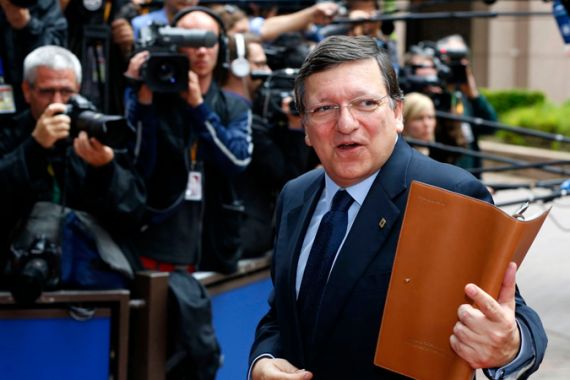EU agrees on budget ahead of major summit
European Union officials reach last-minute budget deal after a year of disagreements between member states.

After more than a year of divisive and unproductive squabbling, the European Union has finally agreed to a budget deal, just hours ahead of a summit to end rampant youth unemployment in the bloc.
The last-minute agreement was reached on Thursday, as officials finally signed off on a $1.3 trillion budget for the EU, including the first spending cuts in its history.
Keep reading
list of 4 itemsBehind India’s Manipur conflict: A tale of drugs, armed groups and politics
China’s economy beats expectations, growing 5.3 percent in first quarter
Inside the pressures facing Quebec’s billion-dollar maple syrup industry
The agreement still requires parliamentary approval.
Without a budget in place, the programmes to tackle unemployment and other issues to be discussed in the upcoming two-day summit in Brussels would not have been able to be launched.
European Commission President Jose Manuel Barroso announced the agreement, saying “this is a good deal for Europe, this is a good deal for European citizens, this is a good deal for the European economy”.
The 2014-2020 trillion-euro budget was only agreed upon with compromises on all sides.
At a summit in February, Britain, backed by Germany and the Netherlands, shot down a Commission bid to increase the budget by 5 percent as being unacceptable in times of austerity.
Instead, EU leaders for the first time ever agreed to cut spending, by 3.0 percent, in a move that angered MEPs who said money was needed to implement growth measures in their struggling countries.
Banking failures
European Parliament president Martin Schulz, who will be meeting leaders of the parliament’s groups later on Thursday, said it was “not an easy compromise” and that he would have to battle to win support from a majority of MEPs to now back a cut in the budget.
After seven hours of talks that followed 18 hours of unsuccessful bargaining last week, finance ministers also agreed on how to share the costs of future bank failures among investors and wealthy savers during the emergency breakfast meeting.
They laid the groundwork for a single system to resolve failed banks in the eurozone and the 27-nation EU.
Separate from national spending, and much smaller than EU national budgets, the EU budget is designed in part to balance out the economic development of its members by injecting funding into poorer countries.
The EU has funded thousands of infrastructure and capital projects over the years, from the installation of broadband networks to the upgrade of road networks.